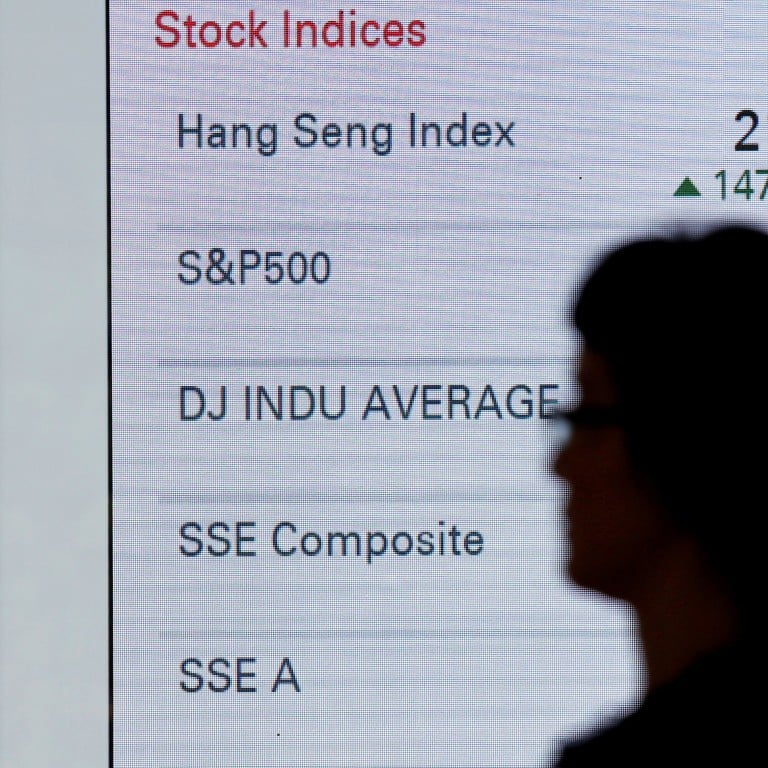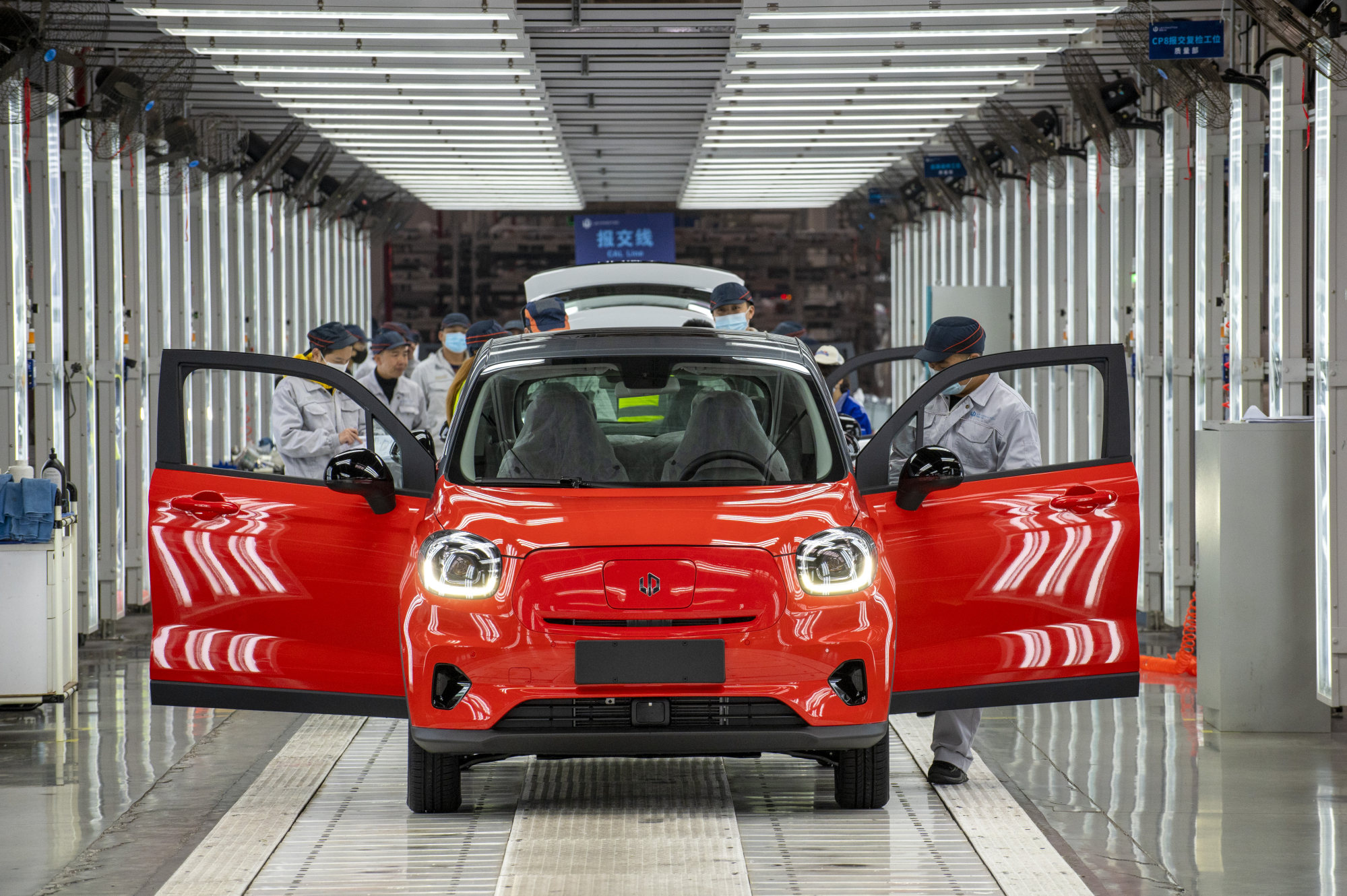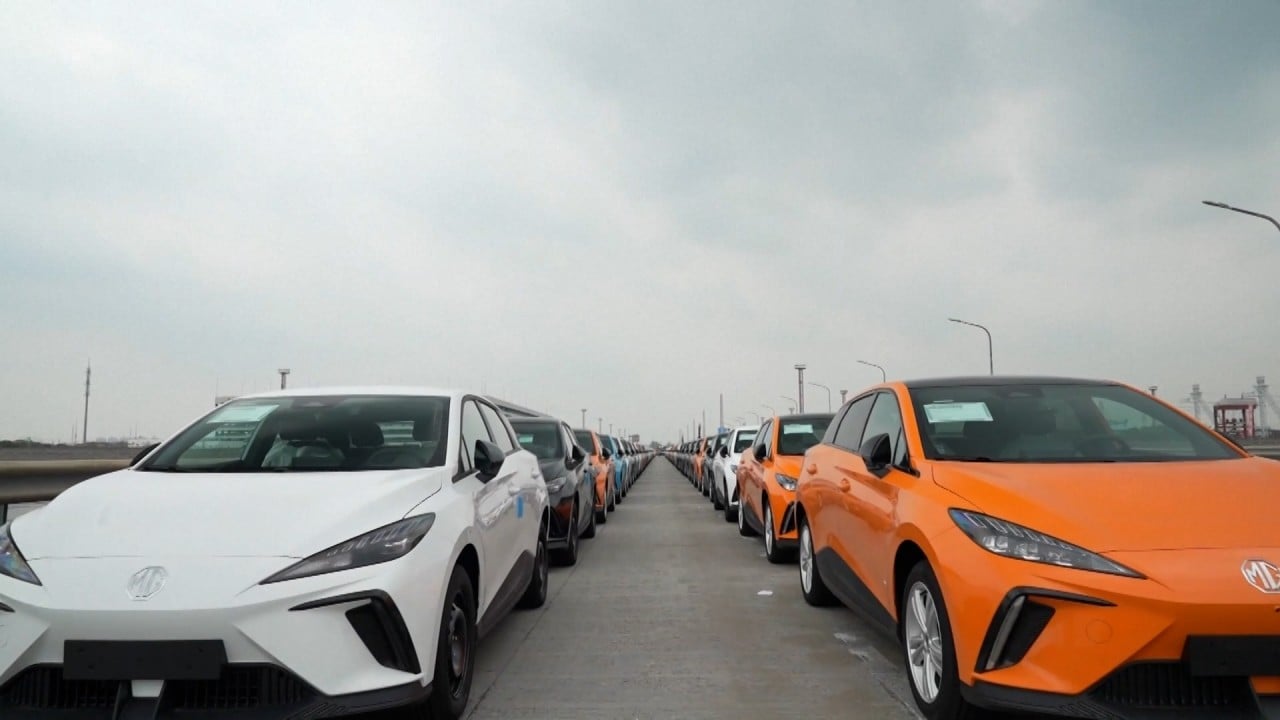
Hong Kong IPOs flop as Leapmotor sinks 34 per cent in market debut and Onewo struggles below offer price
- Zhejiang Leapmotor plunges 34 per cent while Onewo loses almost 7 per cent
- Both IPOs were undersubscribed by local investors in a week when the Hang Seng Index hits an 11-year low, forcing them to price in lower-half of range
Electric-car maker Leapmotor first traded at HK$41, versus its IPO price of HK$48 (US$6.11), before closing at HK$31.90. Onewo, a property management services unit of China Vanke, opened at HK$45.60 and ended at HK$46, 6.8 per cent below its offer price of HK$49.35.
Onewo declined as much as 15 per cent to HK$42.05 earlier. The Hang Seng Index dropped 0.5 per cent, reversing a gain of as much as 2.2 per cent to extend its decline from the lowest level since October 2011.

Leapmotor’s debut also ranked poorly among the IPOs of rival Chinese electric-vehicle makers in Hong Kong. Nio’s shares rose 1.4 per cent when they began trading in March this year, while Xpeng handed investors 1.8 per cent in July 2021. Li Auto fell 13 per cent when it started trading a month later.
Kelvin Cho, Leapmotor’s chief financial officer, told an online media briefing after the carmaker’s trading debut that the IPO had support and endorsement from high-quality global institutional investors, who believe in the long-term growth prospects of the company.
Listed status “will bring us various benefits, including strengthening our brand equity, [building] trust with our users and consumers, and giving us an additional great platform for facilitating future financing”, he said.
Leapmotor, founded in 2015, assembles and sells battery-powered minicars, coupes and sport utility vehicles.
In the first eight months of this year, the electric vehicle (EV) start-up delivered 76,563 units, up 222.8 per cent from the same period in 2021.
Guangzhou-based Xpeng, the best-performing Chinese smart EV maker and a competitor, delivered 90,085 vehicles between January and August, up 96 per cent on year.
The Hong Kong-listed shares of Xpeng have, however, plunged 74 per cent so far this year to trade at HK$47.90 on Thursday.
“Not all emerging EV start-ups in China will eventually become winners due to escalated competition,” said Phate Zhang, founder of Shanghai-based EV news site CnEVpost. “With listing status, unprofitable EV companies can gain an advantage over non-public firms in fundraising.”
On Wednesday, Leapmotor officially launched its new C01 sedan, priced from 193,800 yuan (US$26,970) to 286,800 yuan after subsidy. The vehicle can go as far as 630 kilometres on a single charge, according to the company.



